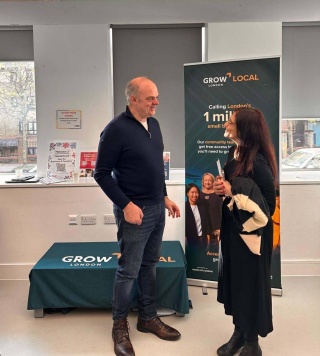HOW TO WRITE GREAT PAGE TITLES

Writing the title of a page often comes as an afterthought, even to some professional copywriters. After all, it’s the main body of content that people are coming to that page for in the first place, right? That may be partially true, but the reality is that nobody will want to check out that content in the first place if the title doesn’t properly draw attention to it. And accomplishing that takes more effort than you might expect, especially if you’re new to writing optimised content.
Why are Page Titles Important?
Optimising a page title is one of the best ways to improve a page’s click-through rate. On a web page, a title is typically an H1 HTML heading, which means it stands out as the largest font on the page. Creating a strong page title is a quick and easy way to optimise the SEO of a page. A good title tells the reader exactly what the page is about, which means they won’t need to scroll down and read a chunk of content that might not be relevant to their needs.
Page titles also tell the search engine what the page is about. This, too, is important. If a search engine decides the page matches a user’s search query, it will be ranked higher in the SERPs. According to various experts, a page’s title has a direct impact on page ranking, so ignore it at your peril.
A good title is also better for reader engagement. Readers are less likely to click on a page and then bounce away immediately if the title correctly matches the page’s content. High bounce rates are bad for SEO and are a sign of poor engagement. Good titles are linked to lower bounce rates and better reader engagement.
Title tags and page titles work in tandem to confirm to the reader the content meets their needs. This creates a better user experience, which as we all know is critical for achieving a higher rank in the Google SERPs.
Every Word Counts
Your title should be short and to the point. Every word counts as you have a very limited amount of space to work with. This also makes the exact arrangement of your phrases important.
Whenever possible, start with the words you want to target through your optimisation. This is a combination of good SEO practices and understanding the needs of your readers as deeply as possible. This can sometimes lead to awkward wording, but people might be willing to look the other way if they understand that the content will provide them with a lot of value.
Always include relevant keywords in your page title. It isn’t a good idea to try and stuff as many keywords as possible into the title, but where possible, try to use your primary keyword. For example, if you were trying to rank for “pet poodles” your title could be “Why Poodles Make Great Pets for Kids”.
Study the Competition
Never ignore what your competitors are doing. Do your best to study their work in detail, even if you believe they are performing more poorly than you. Of course, we’re not saying you should outright copy the ideas of competing companies and sites. That would not only be immoral, but it will also drag down the SEO performance of your campaign. Rather, pay attention to the smaller details and try to understand the motivation behind each specific decision.
Why did they go with that unusual word, even though it ranks lower than related terms in searches? Is there a specific purpose behind the use of punctuation in the title? All of these points might seem small and irrelevant, but they can actually matter a lot more than you’d expect.
Use Modern Tools
There are many tools that can help you make more sense of what you’re doing and how successful your page titles are. Artificial intelligence can help you study your titles in detail and figure out how they can be improved. What’s more, those tools base their suggestions on actual data that they’ve been collecting and evaluating for a long time. You’ll never be stuck playing a guessing game when trying to improve your titles. Which, unfortunately, is exactly how some companies still operate.
It can take a while to get the hang of writing great page titles, especially if you’ve never done it more actively before. But once you’ve figured out the basics of what works and what doesn’t, it won’t be long before you automatically start to gravitate towards certain decisions because you understand that they are better on some level. Maybe you won’t immediately know what exactly makes them better, but you will have the hunch that many people don’t. Building on that, once you have it, is quite easy and will flow much more smoothly than the initial effort required to get there.

